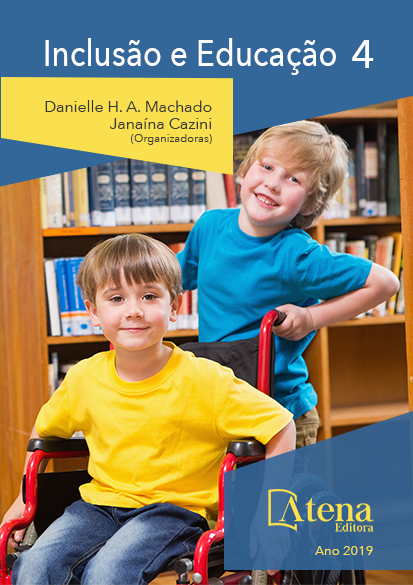
CULTURA LETRADA E TDICS: ANÁLISES NA GENERALIZAÇÃO DAS POLÍTICAS DE INCLUSÃO DIGITAL
Objetiva-se analisar as mudanças
e continuidades das práticas escolares na
era das Tecnologias Digitais de Informação
e Comunicação no contexto das políticas
educacionais voltadas para a inclusão digital
e fortalecimento de uma cultura letrada.
Este trabalho foi desenvolvido a partir de
pesquisas de campo realizadas nos anos
de 2015 e 2016 em uma escola pública de
ensino médio de tempo integral de Campina
Grande, na Paraíba, que contava com cerca
de 600 alunos, na sua maioria, residentes em
diversos municípios entorno da referida cidade.
Parte-se do pressuposto de que o acesso e
uso às tecnologias digitais de informação e
comunicação, o conjunto das ações das políticas
educacionais de inclusão digital e os “novos”
formatos educacionais (a escola em tempo
integral) podem influenciar na (re) constituição
dos modos de pensar, ser e aprender dos
jovens estudantes contemporâneos. Conclui-se
que, mesmo com os investimentos em cursos
de capacitação para os professores na área da
informática e da disponibilização de diversos
equipamentos digitais para professores e
alunos, a maior dificuldade para a inserção de
uma cultura digital nessas escolas deve-se,
sobretudo, pela intensificação dos conflitos
entre alunos e professores no âmbito das
práticas simultâneas de uma cultura letrada e
digital.
CULTURA LETRADA E TDICS: ANÁLISES NA GENERALIZAÇÃO DAS POLÍTICAS DE INCLUSÃO DIGITAL
-
DOI: 10.22533/at.ed.32219150122
-
Palavras-chave: Políticas educacionais, tempo integral, inclusão digital.
-
Keywords: Educational policies, full time, digital inclusion.
-
Abstract:
The objective is to analyze the
changes and continuities of school practices in
the era of Digital Information and Communication
Technologies in the context of educational
policies aimed at the digital inclusion and
strengthening of a literate culture. This work
was developed from field research carried
out in 2015 and 2016 in a full-time public high
school in Campina Grande, Paraíba, which had
about 600 students, mostly residents of several
municipalities surrounding the city. It is assumed
that access to and use of digital information and
communication technologies, the set of actions
of the educational policies of digital inclusion
and the “new” educational formats (the full-time
school) can influence the (re) constitution ways
of thinking, being and learning of contemporary
young students. It is concluded that, even with
the investments in training courses for teachers
in the area of informatics and the availability
of various digital equipment for teachers and
students, the greatest difficulty for the insertion
of a digital culture in these schools is due, by the intensification of conflicts between
students and teachers in the framework of the simultaneous practices of a literate and
digital culture.
-
Número de páginas: 15
- Edgard Leitão de Albuquerque Neto


